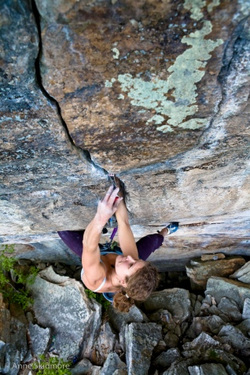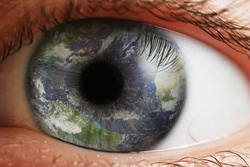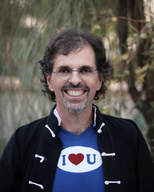 A recent blog post by Jonathan Fields, author of The Uncertainty Book, caught my eye. The post, which is entitled "Turning Play into Pay," features writer and filmmaker Majka Burhardt, who has turned her passion for travel, adventure, and the outdoors into a profession. This comes at a time when I have been discussing the current job trends with my psychology students at the University of Arizona. Our dialogues have focused on recently released statistics showing that 53% of college students who graduated in the Class of 2012 are either unemployed or underemployed. Some of my students have used the word "horrified" when confronted with these trends. A few have admitted that they are conflicted between studying subjects that fascinate and excite them or choosing a major that they feel will increase their chances of landing a job out of college. Many of them will end up going in a direction that they think is practical, but if that direction denies or ignores their true interests and passions, the decision will turn out to be much less practical than they think. For one thing, the passionate individual always stands out. In a field of job applicants, who would you rather hire: the one who is merely competent or the one who is excited about the job, including the opportunity to learn new skills and collaborate with others? Everybody can tell when you're just going through the motions, starting with you. People who don't love what they do generally don't last in a particular job or field. I saw this with my many friends who majored in electrical engineering in the 1980's simply because there were high-tech jobs to be had. Within a few years, several of these friends had quit their Silicon Valley jobs to pursue careers as contractors, artisans, and entrepreneurs. One guy became a professional chess player, making a modest living doing the one thing he loved the most. It doesn't matter if you find fulfillment by doing what you love or by loving what you do. Not everyone who loves playing chess is going to get paid for it. A number of factors are at play, including talent, dedication, tremendous patience, and good fortune. But when you focus on whatever inspires you the most, incredible things just seem to happen. Opportunities arise, like-minded people find you, and you put yourself in the flow of abundance. I am very happy to say that I know this from personal experience!
0 Comments
I recently saw a wonderful video by Gretchen Rubin, author of The Happiness Project. The video, which you can watch below, deals with the topic of rumination. This is when your mind goes over a worrying thought repeatedly, without being able to let go of it. We've probably all experienced this at one time or another. When it happens, our minds have a hard time letting go. Gretchen offers this solution: Break the cycle of rumination by distracting yourself with an activity that you find enjoyable. I couldn't agree more, Gretchen! There's a name for this kind of activity. It's called PLAY. In my second book, The Way of Play: Reclaiming Divine Fun and Celebration, I make the case for play as a spiritual path: "Meditators dream of attaining the single-pointed focus that young children experiendce naturally when they play. Spiritual aspirants long for hte rapture that defines moments of pure delight. Instead of working at spirituality, we can make far greater strides if we play at it." One of the spiritual benefits of play is that it consumes our attention, drawing it away from unproductive thoughts and feelings. Another is that we "lose" ourselves in it. When we're engaged in an activity we enjoy--whether it involve physical activity, creative expression, connecting with nature, relaxation, or some other form of play--all our cares seem to dissipate, perhaps because the part of us that tends to ruminate just turns off for a while. So, play can be our meditation, our therapy, and our teacher. It lets us break free of old patterns of thinking so that new ones can emerge. We celebrate the playful spirit that abides within each human being. Granted, it may be dormant in some of us, but it's not hard to find. The feelings that our favorite forms of play elicit in us get etched into our consciousness. When we think back to our greatest experiences of delight, of love and joy, and of inspiration, we are transported directly to our playful spirit, which is just awaiting this simple invitation: Won't you come out and play? I'd love to hear from you: What are your favorite forms of play? If you have any great stories about the positive impact of play in your life, I'd love to hear them, and perhaps even share them in my Heaven on Earth newsletter.  I just came across a beautiful Blog post entitled “An Intentional Life,” on Leo Babauta’s Zen Habits website. He offers a simple and attainable proposal for becoming mindful of the intentions underlying all of our actions—even those that seem most routine. Here is one of my favorite passages from the post: “What if you washed the dishes, but first said you are doing this as a service to your family, to make them happy, and as a form of meditation for yourself, to practice mindfulness? Doing the dishes would suddenly take on much more importance, and would cease to be boring.” This is in perfect alignment with the mission of Global Chant these past 16 years, and now with the PlayHaven vision. The power of intention to transform a mundane task like dishwashing into a transformative healing practice has to do with two factors: 1. Intention as a bridge. When we set an intention, we bring together two realms: one of possibility and the other of actuality. Lately, I have been fascinated with the word “figment.” A figment is something that exists only in the imagination. But everything that human beings have ever created began as a figment. The realities of tomorrow are the figments of today. And only through our intention do we transform figments into reality. When we set an intention, we create an opening for new possibilities to be realized. The word “intend” comes from the Latin tendere, meaning to stretch. Reality is malleable; we can shape and mold it to a much greater degree than most of us realize. Our intentions stretch the limits of our existing reality to make room for something new to manifest. That is why it matters greatly what kinds of intentions we set, which leads me to… 2. Intention as service. We can direct our intentions towards whatever we want. But what I have observed, not just from my own experience but from those of many others in my community, is that our intentions are most effective when directed towards someone other than ourselves. It is one of the great and intriguing ironies of life that by focusing on the benefit of another, we derive maximal benefit ourselves. Teachers know this: the best way to learn is by teaching someone else. Similarly, nobody experiences greater healing than the healer. This is consistent with the philosophy of “enlightened self-interest,” which states that those who act to further the interests of others ultimately serve their own interests by doing so. Keeping others in our intentions gives us a sense of calling or purpose, and it draws our focus away from our own problems. It is a much more productive strategy for attaining happiness than any self-centered approach. What has been your experience with intention? How do you incorporate intention into your everyday life? And what kinds of intentions do you tend to set? Please let me know your thoughts and impressions.  If you've looked through this website, you know that the theme here is the creation of what I'm calling "Heaven on Earth." First of all, what does that mean? For me, this term refers to the enactment of three ideals: Peace, Sustainability, and Balance. Let's look at them one by one: Peace. This is not simply the absence of war, but a condition characterized by respect, compassion, kindness, forgiveness, and unconditional love, as well as the absence of judgment. Peace arises from the commitment to act in ways that maximize benefit to others while minimizing harm. Sustainability. To live sustainably means to take into account our connection with others, including the possible impact of our actions on people, plants, animals, ecosystems, and the Earth itself. The Iriquois people live by the following principle: "In every deliberation, we must consider the impact on the seventh generation...even if it requires having skin as thick as the bark of a pine." The point is: It's not easy to be sustainable. But we owe it to those with whom we share the planet now and to those who will embrace sustainability. We begin taking on this challenge by treating everything that comes into our lives as a gift--not as a commodity. Each of us knows that the proper response to a gift is two simple words: "Thank you." Sustainability arises from an attitude of gratitude, as well as a commitment to eliminate wastefulness from our lives. This means reducing our material needs and making the most of the gifts and resources at our disposal. Balance. Health and happiness are two sides of the same coin, stemming from balance--an evenness of mind that cannot be disturbed even by the greatest of stressors. Buddhism offers the idea of the "Middle Way," which is the point of balance between extremes such as attachment and aversion. When the pursuit of one thing--food, money, sex, power--becomes the focal point of our lives, that is when we lose our sense of balance. At its core, balance involves freedom from expectations. When we expect something other than what we're getting, we set ourselves for emotions such as anger, depression, resentment, and jealousy. An alternative response to the events of our lives is to approach them with serenity, making the commitment to remain centered and to keep our hearts open to the world, regardless of what happens. As you can probably tell, my view is that these ideals begin with us. We can create Heaven and Earth right here and now, by establishing Peace, Sustainability, and Balance within ourselves. Will this make a difference? Can one person’s thoughts, experiences, and actions have any effect at a time when the world seems like it’s spinning out of control? You tell me. Do you know of examples of individuals whose kindness and compassion rubbed off on those around them? If so, please share them. My contact information can be found on the right side of this page.  How long does it take to heal the pain and sadness of grief? Most of us have experienced the heartbreak that comes from losing someone we cherish. You have probably heard, as I have, that it takes at least a year to overcome the grief associated with the death of a loved one, or that we will grieve the loss of an intimate relationship for as many months or years as we were in it. But what does the research say? How long does grief last? Psychologists who study this subject will tell you that there are enormous individual differences when it comes to grief. Some people resolve grief relatively fast, and others experience it for years. The rule of thumb is that "time heals all wounds." But why is that? What happens over time that causes this healing to occur? We know there is a natural healing system in our bodies that responds to physical injury or illness. But is there a mental healing system, as well? If so, how does it work? Here is a take on grief that you have probably never heard before: It only takes a moment to overcome grief. When I've interviewed people about their past experiences of grief, most of them can pinpoint the day and even the time when something shifted in them and they found resolution of their feelings. For many of these individuals, the moment of healing took months or years to arrive. Why is that? Perhaps there was an element of forgetting that needed to happen. The intensity of the initial feelings may have had to fade enough to allow room for a different perspective to develop, including fresh insights and a deeper understanding of what had happened. Ultimately, the key element in healing grief is surrender, which means letting go of attachment. Grief stems from attachment because it's hard to let go of someone we love and cherish. Perhaps we expect more, saying to ourselves: This relationship ended too soon. This person died much too young. I wasn't ready to lose this person yet. I feel that I deserved more time with them. I am entitled to more than I got. Healing our grief involves making an enormous leap that comes when we focus not on our expectations of something we didn't get but rather on our gratitude for what we had and continue to have. In a flash, we come to the realization that we were fortunate and blessed to have had the experiences we did, to have had the honor of this person's acquaintance, to have basked in the warmth of their love, and to have shared so much with them. We can let go of the feeling that there were missed opportunities or important things that remained unsaid if we accept that what we had was enough and that it was perfect just as it was. For some, this shift takes months or years to arrive. But that time frame is not set in stone. If we can love wholeheartedly without attachment or expectations, then we can experience healing from grief in a single instant. It is truly possible. I have witnessed it and experienced it firsthand. What about you? How have you dealt with grief in your own life? Can you recall a specific moment when your feelings of loss just dissipated or resolved themselves? |
I want to hear from you! Please share your questions and comments. And sign up for my newsletter, where I will pass along the insights, ideas, and inspiration that come my way.
Contact me:Archives
November 2023
|

 RSS Feed
RSS Feed
